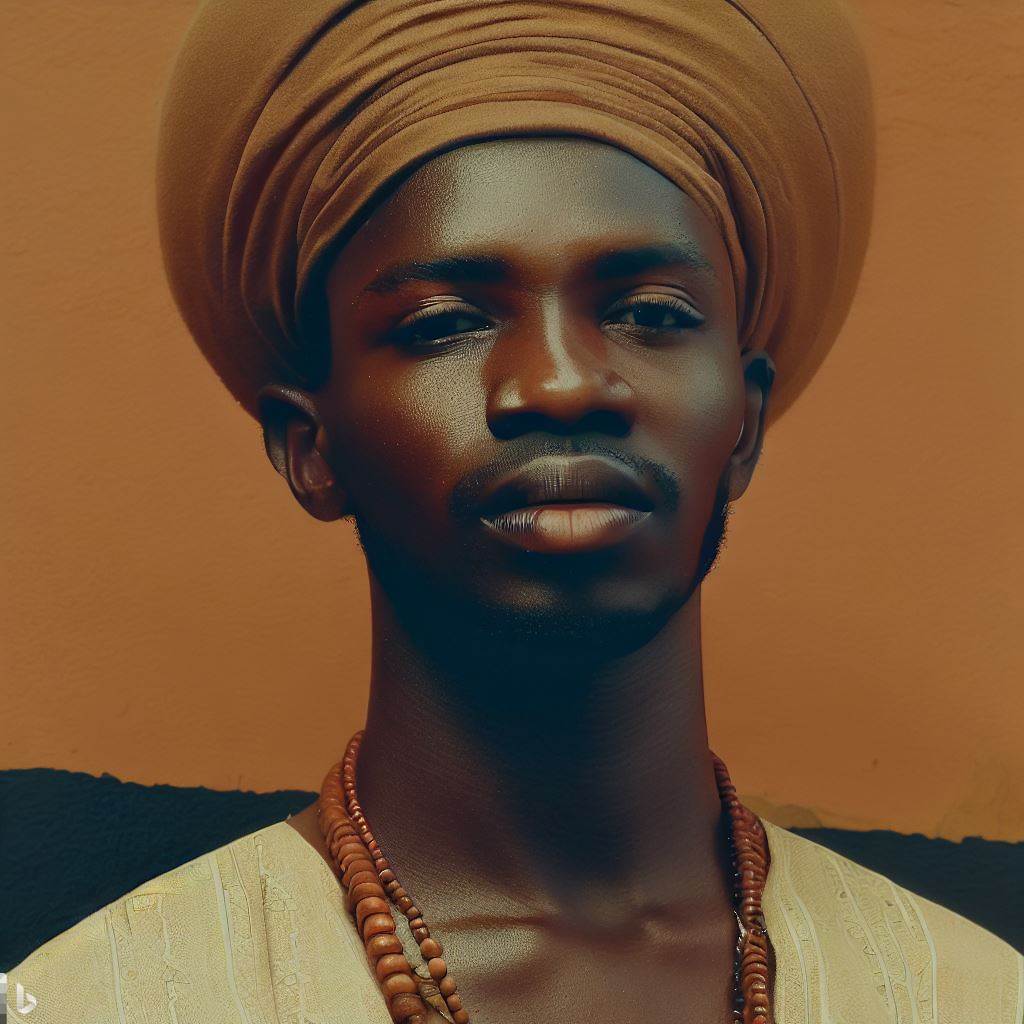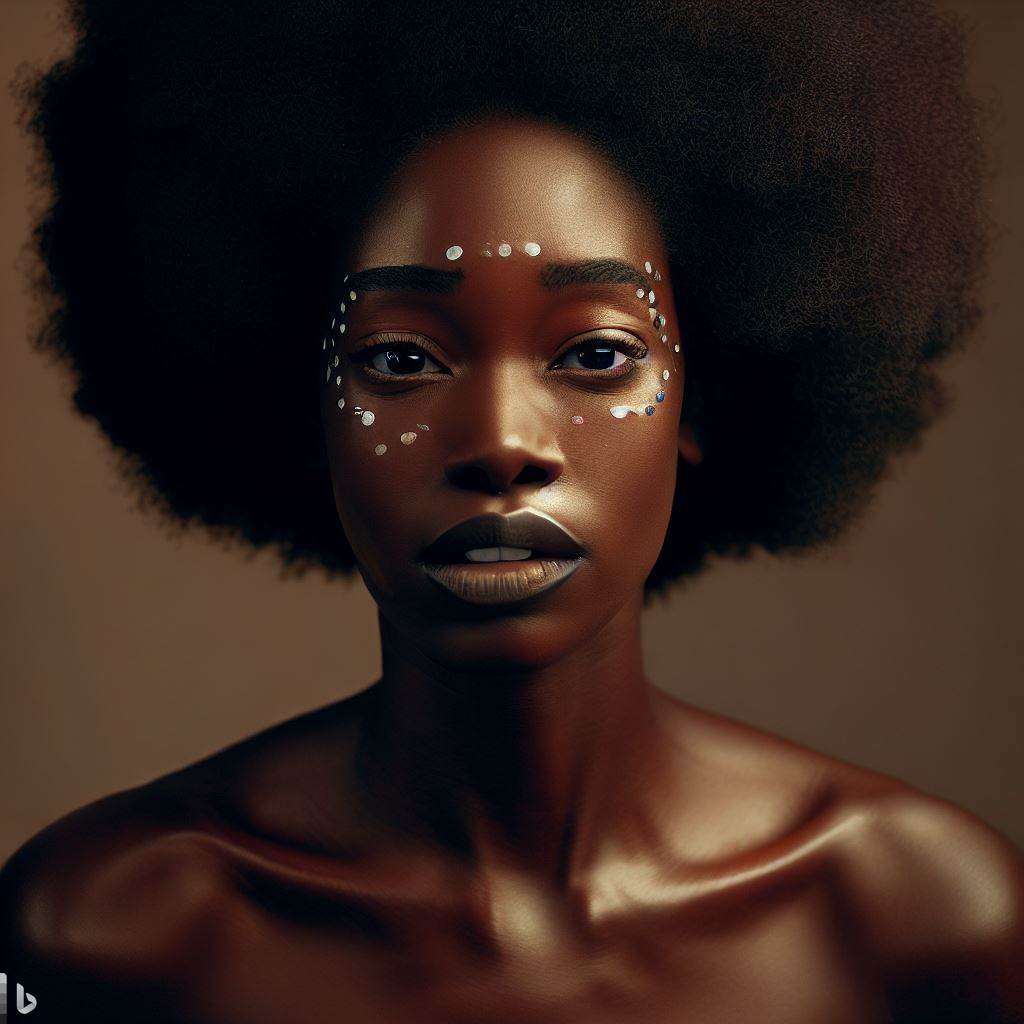Introduction
Nigerian songwriting can be defined as the process of creating lyrics and melodies for music originating from Nigeria. Cultural influences play a crucial role in shaping the art of songwriting in Nigeria.
These influences are important in preserving and promoting Nigerian heritage, traditions, and identity through music.
In this blog post, we will explore the significance of cultural influences on Nigerian songwriting and discuss main points such as the incorporation of traditional instruments, the use of indigenous languages, and the reflection of social issues in lyrics.
In Nigerian songwriting, cultural influences serve as a bridge connecting the past and the present, providing a unique and authentic sound that is recognized globally.
Traditional instruments like the talking drum and the shekere add a distinct flavor to Nigerian songs, celebrating cultural heritage and adding depth to the music.
Furthermore, Nigerian songwriters often embrace their native languages, using them in lyrics to express emotions, tell stories, and connect with audiences on a deeper level.
Moreover, cultural influences in Nigerian songwriting provide a platform to address social issues such as poverty, corruption, and inequality.
Many Nigerian musicians utilize their lyrics to raise awareness and advocate for positive change in society.
By discussing these main points, we aim to shed light on the rich cultural influences that shape Nigerian songwriting and highlight its importance in preserving Nigerian traditions and promoting social change through music.
Traditional Nigerian Music
Overview of traditional music styles
Traditional Nigerian music is rich and diverse, reflecting the country’s cultural heritage and ethnic diversity.
It encompasses various music styles that vary from region to region, each with its unique characteristics and rhythms.
One such style is Juju music, which originated from the Yoruba people of Nigeria. It combines traditional Yoruba percussion instruments with modern electric instruments, resulting in a lively and infectious sound.
Juju music is known for its strong rhythmic patterns and energetic dance moves.
Another popular traditional music style in Nigeria is Highlife music.
Originating from the Igbo people of the eastern part of the country, Highlife music blends indigenous rhythms with Western influences, such as jazz and swing.
It often features the use of horns, guitars, and keyboards, creating a vibrant and melodic sound.
Role of storytelling and oral traditions
Storytelling plays a significant role in traditional Nigerian music. Songs are used as a means to convey history, cultural values, and societal norms.
Through music, ancestors and heroes are remembered, and lessons are passed down from one generation to another.
Oral traditions, such as folk songs and chants, are integral components of Nigerian songwriting.
These oral narratives often address social and political issues, offering commentary on the state of society and everyday life.
They serve as a way for people to connect with their heritage and express their thoughts and feelings.
Influence of Nigerian folktales and proverbs
Nigerian folktales and proverbs have a profound impact on Nigerian songwriting. They provide inspiration for lyrics, themes, and musical compositions.
These tales often embody moral lessons, teach values, and offer insights into the Nigerian way of life.
Proverbs, on the other hand, are concise and witty sayings that encapsulate cultural wisdom. They are frequently incorporated into song lyrics, adding depth and meaning to the music.
Nigerian songwriters cleverly integrate these proverbs, giving their songs a distinct and thought-provoking quality.
Use of indigenous instruments
Indigenous instruments are an integral part of Nigerian music and greatly influence Nigerian songwriting. These instruments include the talking drum, the shekere, the ogene, the oja, and the udu.
Each instrument has its unique sound and role, adding richness and authenticity to the music.
The talking drum, for example, is used to mimic human speech and is often referred to as the “language drum.”
It is played by squeezing the drum’s tension ropes to produce different tones and pitches, effectively communicating messages through rhythms and beats.
The shekere, a type of gourd covered with a net of beads or shells, is commonly used for percussive effects. It creates a distinct shaking sound, enhancing the rhythm and adding texture to the music.
Basically, traditional Nigerian music is deeply rooted in the country’s cultural heritage, and its influences can be readily observed in Nigerian songwriting.
By embracing storytelling, oral traditions, folktales, proverbs, and indigenous instruments, Nigerian songwriters are able to create music that is both dynamically diverse and culturally rich.
These influences contribute to the unique and captivating nature of Nigerian music, captivating both local and international audiences alike.
Read: Monetizing Your Music: Songwriters in Nigeria
Western Influence on Nigerian Songwriting
The Nigerian music scene evolved significantly due to Western music’s profound influence over the years.
- Colonial Era Origins: European missionaries introduced Western music during the colonial era.
- Fusion of Styles: These early influences laid the groundwork for blending Western and Nigerian musical styles.
- Youth’s Embrace: Nigerian artists have recently embraced Western genres like hip hop, R&B, and Afrobeat.
- Global Appeal: Wizkid, Davido, and Burna Boy incorporated these genres, attracting a global audience.
- Western Musical Elements: Nigerian musicians integrated Western-style melodies, harmonies, and chord progressions.
- Unique Identity: This fusion created a unique musical identity setting Nigerian music apart.
- Song Structures and Instruments: Nigerian artists adopted Western song structures and instruments like guitar, keyboard, and drums.
Western influence significantly shaped Nigerian songwriting, fostering a vibrant music industry. The ongoing cultural exchange promises a dynamic future.
Read: Impact of Afrobeat: Nigerian Songwriting Evolved
Socio-Political Influences on Nigerian Songwriting
In this section, we will explore the socio-political influences on Nigerian songwriting.
Expression of political and social issues through music
- Songwriters in Nigeria have often used their music as a platform to express their views on political and social issues.
- They address topics such as corruption, poverty, inequality, and government policies.
- By doing so, they raise awareness among the masses and encourage discussions on these crucial matters.
- Many Nigerian songs have become anthems for social movements and calls for change.
Significance of Nigerian independence and the post-colonial era
- Nigeria gained independence from British colonial rule in 1960, which marked a significant turning point in the country’s history.
- Many songwriters reflected on this historic event in their compositions.
- They praised the freedom and liberation brought by independence, while also highlighting the challenges of nation-building.
- These songs served as a source of national pride and identity, fostering unity among Nigerians.
Nigerian Civil War and its impact on songwriting
- The Nigerian Civil War, also known as the Biafran War, occurred from 1967 to 1970.
- During this period, songwriters expressed their experiences, emotions, and hopes for peace through their music.
- The songs provided comfort and solace to individuals affected by the war, promoting healing and reconciliation.
- They also served as a reminder of the devastating consequences of conflict and the importance of unity.
Role of music in cultural activism and raising awareness
- Music has played a vital role in cultural activism and raising awareness about various issues in Nigerian society.
- Songwriters have used their artistic talents to shed light on cultural practices, traditions, and values.
- They address topics such as gender inequality, religious tolerance, tribal harmony, and preservation of cultural heritage.
- By incorporating these themes into their music, they ensure the preservation and continuation of Nigerian culture.
In short, the socio-political influences on Nigerian songwriting are diverse and impactful.
Songwriters use music as a powerful tool to express political and social issues, commemorate historical events, heal from conflicts, and promote cultural activism.
Through their songs, they contribute to the development and preservation of Nigerian society and its rich cultural heritage.
Read: A Guide to Copyright Laws for Nigerian Songwriters

Religious Influences on Nigerian Songwriting
Religion deeply impacts Nigerian society, influencing music, songwriting, and more. Christian and Islamic traditions shape Nigerian songwriting due to religious diversity.
Inspirational and gospel music convey faith, spirituality, and religious teachings. Songwriters incorporate religious themes for devotion, guidance, and solace.
Religious influences promote positive messages and moral values. Religion blends with cultural practices, reflecting Nigeria’s diversity.
Songs celebrate festivals, fostering joy and unity. Religious songs offer healing and comfort to those facing challenges.
Religious leaders guide and inspire songwriters. Songwriters comment on social and religious issues.
Religious influences preserve cultural heritage through music, traditions, and values.
Read: Successful Women Songwriters in the Nigerian Scene
Discover More: The Future of Music Directing in Nigeria: A Forecast
Regional and Ethnic Influences on Nigerian Songwriting
When it comes to Nigerian songwriting, the rich diversity of ethnic groups and cultures in the country plays a crucial role.
Nigerian music is a melting pot of various regional and ethnic influences, making it a unique and vibrant musical landscape.
In this section, we will explore the different aspects of regional and ethnic influences on Nigerian songwriting.
Diversity of Nigerian Ethnic Groups and Cultures
Nigeria is home to over 250 ethnic groups, each characterized by its language, customs, and traditions.
This diversity has a significant impact on Nigerian songwriting, as artists draw inspiration from their own cultural backgrounds.
Incorporation of Regional Musical Styles and Instruments
One of the defining characteristics of Nigerian songwriting is the incorporation of regional musical styles and instruments.
Artists often fuse traditional and modern sounds, creating a unique blend that appeals to a wide audience.
Influence of Highlife, Juju, and Fuji Music
Highlife, juju, and fuji music are genres that have heavily influenced Nigerian songwriting. Highlife, with its vibrant rhythms and melodies, originated in Ghana but quickly spread to Nigeria, where it became immensely popular.
Juju music, characterized by its use of the talking drum and guitar, has its roots in Yoruba culture. Fuji music, on the other hand, emerged in the late 1960s and is associated with the Muslim population in Nigeria.
Exploration of Specific Regional Influences on Songwriting
In Nigerian songwriting, artists often explore specific regional influences, incorporating elements from different parts of the country.
For example, artists from the south may draw inspiration from Afrobeat and incorporate elements of highlife music into their songs.
Northern artists, on the other hand, may incorporate Hausa language and traditional instruments into their compositions.
In fact, the regional and ethnic influences on Nigerian songwriting are vast and diverse.
Artists draw from their own cultural backgrounds, incorporating regional musical styles and instruments into their compositions.
The influences of highlife, juju, and fuji music can be heard in many Nigerian songs, adding to the vibrant and rich musical landscape of the country.
Globalization and Technological Influences
In today’s interconnected world, globalization and technological advancements have significantly impacted the Nigerian music industry, leading to a fusion of Western and Nigerian sounds in songwriting.
With the rise of social media, streaming platforms, and digital production, Nigerian songwriters have been exposed to a wide range of influences and have gained more accessibility to international music, ultimately shaping their songwriting styles.
Impact of globalization on Nigerian music industry
- Increased exposure to different cultures and music styles from around the world.
- Artists adopting elements from foreign genres and incorporating them into their own music.
- Collaborations between Nigerian musicians and international artists becoming more common.
- Expansion of the music industry due to global distribution and marketing opportunities.
- International recognition and success for Nigerian artists, leading to more opportunities for songwriting.
Fusion of Western and Nigerian sounds
- A blend of Nigerian traditional music, Afrobeat, and Western genres such as hip-hop, R&B, and pop.
- Use of Western musical instruments like the guitar, keyboard, and drum set alongside traditional Nigerian instruments.
- Incorporation of English and local languages in lyrics, reflecting the multicultural influences.
- Creating a unique sound that appeals to both local and international audiences.
- Exploration of different rhythms, melodies, and harmonies, resulting in diverse songwriting styles.
Influence of social media, streaming platforms, and digital production
- Social media platforms like Facebook, Twitter, and Instagram provide a platform for artists to share their music and interact with fans.
- Streaming platforms, such as Spotify and Apple Music, allow artists to distribute their music globally and reach a wider audience.
- Digital production software and equipment have made recording and producing music more accessible and cost-effective.
- Songwriters can experiment with different sounds and techniques, enhancing their creativity.
- Direct feedback from fans and instant sharing of songs online have influenced songwriters to adapt their styles to audience preferences.
Accessibility to international music and its effect on songwriting
- Nigerian songwriters have easy access to a vast repertoire of international music from various genres and time periods.
- Listening to diverse global music influences songwriters’ creative processes and inspires new ideas.
- Understanding international songwriting techniques and trends helps Nigerian songwriters refine their craft.
- Adopting certain elements from international music can give Nigerian songs a fresh appeal and a global sensibility.
- Nigerian songwriters have the opportunity to create music that transcends boundaries and resonates with a global audience.
The influences of globalization and technological advancements have greatly impacted Nigerian songwriting.
The fusion of Western and Nigerian sounds, facilitated by increased accessibility to international music, has led to the creation of unique and diverse songwriting styles.
The role of social media, streaming platforms, and digital production cannot be understated as they provide platforms for exposure, collaboration, and experimentation.
As Nigerian songwriters continue to embrace global influences, their music evolves, enriching the cultural tapestry and contributing to the vibrancy of the Nigerian music industry.
Conclusion
This blog post explored the cultural influences on Nigerian songwriting, highlighting the importance of honoring and appreciating these influences in music creation.
Throughout the post, we discussed several main points:
- Nigerian songwriting is heavily influenced by the country’s diverse cultural heritage.
- The fusion of traditional Nigerian music elements with modern genres creates a unique and rich musical landscape.
- Nigerian songwriters draw inspiration from different cultural traditions, including Yoruba, Igbo, and Hausa.
- The use of indigenous languages in songwriting preserves and celebrates Nigerian culture.
It is important to emphasize the richness and diversity of Nigerian songwriting, as it reflects the country’s history, customs, and values.
By incorporating cultural influences into their music, Nigerian songwriters create connections and promote cultural appreciation.
Therefore, it is crucial for artists and listeners alike to recognize and respect the cultural influences embedded in Nigerian songwriting.
By doing so, we preserve the unique identity of Nigerian music and contribute to the global appreciation of its cultural significance.




